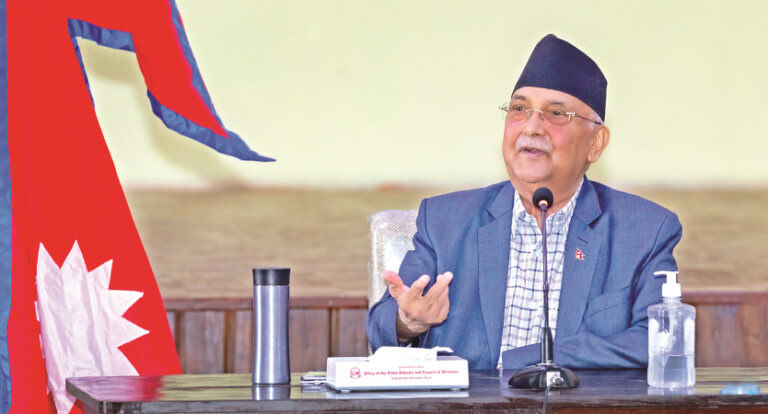
Prime Minister KP Sharma Oli has instructed the concerned bodies to formulate education policy and regulation only after making a projection of required manpower for the country.
He gave that instruction while addressing the 7th meeting of the Medical Education Commission at the Prime Minister’s official residence in Baluwatar on Friday. Prime Minister Oli, who is also the chairperson of the commission, said before preparing education policy, the number of manpower the country needs should be clearly understood.
Prior to making any education policy, a clear projection should be made on how many health experts, general technical manpower and middle-level manpower the country needs, he added.
The Prime Minister was of the view that producing manpower without projection would lead to a shortage of manpower in some sectors and unemployment due to overproduction in others.
“Producing manpower without understanding the requirement has created a situation wherein an educated and skilled person remains unemployed, but actually he/she should be the employer themselves,” he said.
Stating that he had also realised a shortage of nurses in the hospitals, Prime Minister Oli said some hospitals had not created required posts.
Referring to the medical health education programmes run by the Council for Technical Education and Vocational Training (CTEVT), the Prime Minister said the council should give continuity to only essential programmes and the rest should be stopped immediately. “The people of the rural areas consider women health volunteers as their doctors. They get a chance to visit the doctor only after travelling to cities. Therefore, it will be a great achievement if we are able to recruit nurses in those areas,” he said.
Despite being busy for two years, the achievement of the Medical Education Commission is not satisfactory, said the Prime Minister. “Making rules with negative thinking and interpreting things negatively only create confusion,” he said.
He added that it was up to the university to decide on how many colleges it can grant affiliation to depending on its capacity and that the quota should be fixed only after evaluating the capacity of the university to monitor and conduct examinations at the affiliated colleges.
“The capacity of Tribhuvan University may be more than other universities, but the newly opened university may offer affiliation to only one college,” he added.
Source : THE RISING NEPAL,





